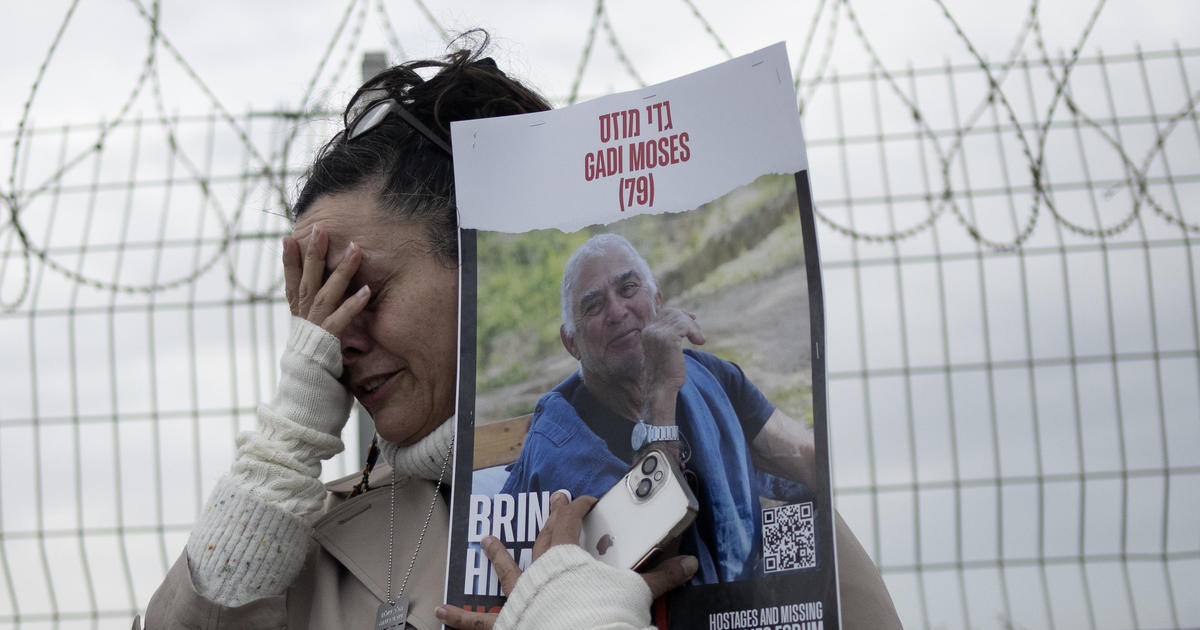The October 2023 Hamas attack on Israel left a trail of devastation and heartbreak, profoundly impacting countless families. Among them is the Machikawa family, whose lives were irrevocably altered when several members were killed and others taken hostage. One year later, Efrat Machikawa navigates the complexities of grief, advocacy, and the persistent hope for the return of her uncle, Gadi Moses, still held captive in Gaza. This year’s Rosh Hashanah, a time for joyous celebration, is instead steeped in the profound sorrow of loss and the unwavering determination to reunite their family. The family’s experience highlights the enduring human cost of the conflict and the relentless efforts of families fighting to bring their loved ones home.
The Devastation and Aftermath of the Hamas Attack
The October 7th Massacre and its Impact on the Machikawa Family
The October 7th Hamas attack on Israel shattered the lives of the Machikawa family. Six members of the family were either killed or taken hostage from their home in Kibbutz Nir Oz, a brutal event mirroring the experience of hundreds of other Israeli families. The initial shock and grief were profound, with the loss of loved ones leaving an enduring void. The kidnapping of several family members added a layer of agonizing uncertainty and torment. The immediate aftermath involved a frantic search for loved ones, a process laced with heartbreaking uncertainty and rapidly shifting information. The emotional toll on Efrat and her family was immeasurable, a burden that continues to weigh heavily on them.
The Release of Some Family Members
The subsequent weeks saw the release of four of the kidnapped Machikawa family members. While bringing a measure of relief and the possibility to start processing grief, the ordeal had profoundly impacted each of them. The physical and emotional scars were evident; in the case of Efrat’s aunt Margalit, these included serious health issues acquired during captivity. The contrast between the joy of reunion and the profound lingering trauma underscored the complex emotions of navigating life after such a tragedy. The family’s experience is not isolated; it is representative of hundreds of families coping with both loss and the immense difficulties faced by survivors in their aftermath. The act of reclaiming their lives is a painstaking and extended endeavor requiring time, support, and intensive psychological intervention.
The Ongoing Struggle for the Release of Hostages
Efrat’s Tireless Advocacy for Her Uncle Gadi Moses
Despite the unimaginable grief and emotional toll, Efrat Machikawa has displayed remarkable strength and unwavering dedication to securing the release of her uncle, Gadi Moses, who remains a hostage in Gaza. Her advocacy has extended beyond the confines of her personal struggle. Efrat has actively engaged with international communities, advocating for a diplomatic solution. She has travelled extensively to different countries lobbying foreign governments to influence the Israeli Prime Minister, Benjamin Netanyahu, and compel an agreement with Hamas for the release of hostages in exchange for a ceasefire. She’s used international media outlets to appeal to the global conscience and secure the freedom of her uncle and the others, thus representing the determined spirit of many other Israeli families struggling to reunite with their loved ones.
The Challenges in Negotiating with Hamas and Israeli Government Actions
Efrat’s unrelenting work underscores the complexities and the enormous challenges facing these families. Efrat’s outspoken criticism of the Israeli government’s handling of the hostage situation highlights the frustrations felt by many families of hostages. The negotiations have been protracted and highly fraught with difficulties. There is a stark lack of confidence by the hostages’ families in the way Israeli officials handle such negotiations and communications with Hamas, leaving many families with a disheartening and painful perception of having to be actively engaged and shoulder some responsibilities for getting their loved ones released. She stresses the disproportionate responsibility on the families themselves to ensure continued international and national pressure in hopes that they may hasten a negotiated settlement. This perspective shines a harsh light on how the family, along with others similarly situated, continue to battle against governmental inertia in such negotiations.
Hope and Perseverance Amidst Immense Loss
Maintaining Hope Despite the Ongoing Uncertainty
One year after the attack, Efrat maintains a glimmer of hope amidst her sorrow. Her belief in the eventual return of her uncle reflects her own strength and that of the many Israeli families who continue to fight to get their relatives back home. Maintaining this hope in the face of overwhelming odds speaks to her tenacity and also mirrors the overall experience for many Israelis whose relatives are still being held against their will. The enduring human spirit that she embodies continues to offer an important example to the rest of the global community that continues to watch her story unfold.
Rosh Hashanah and the Search for Meaning
The upcoming Rosh Hashanah holiday holds added significance, symbolizing not only a new year but a period where the profound grief and hope intertwined and highlight the ongoing fight for a future where their family can celebrate the joyous nature of holidays once again. The impact of this holiday cannot be understated as the family’s ability to truly celebrate is marred by a loss so immeasurable that this holiday continues to serve as an important moment in time, emphasizing a fight towards their future together as one unified family.
Takeaway Points
- The October 2023 Hamas attack on Israel resulted in widespread devastation and the kidnapping of hundreds of Israeli citizens.
- Efrat Machikawa’s family was deeply affected, losing family members and enduring the prolonged ordeal of having others kidnapped and subsequently taken hostage.
- Machikawa’s tireless advocacy highlights the emotional toll and the tireless struggle of families of hostages to secure their loved ones’ release.
- Despite immense grief and uncertainty, Machikawa maintains hope and actively works to bring attention to the ongoing hostage crisis.
- The situation underscores the human cost of conflict and the importance of persistent advocacy in bringing about solutions.




